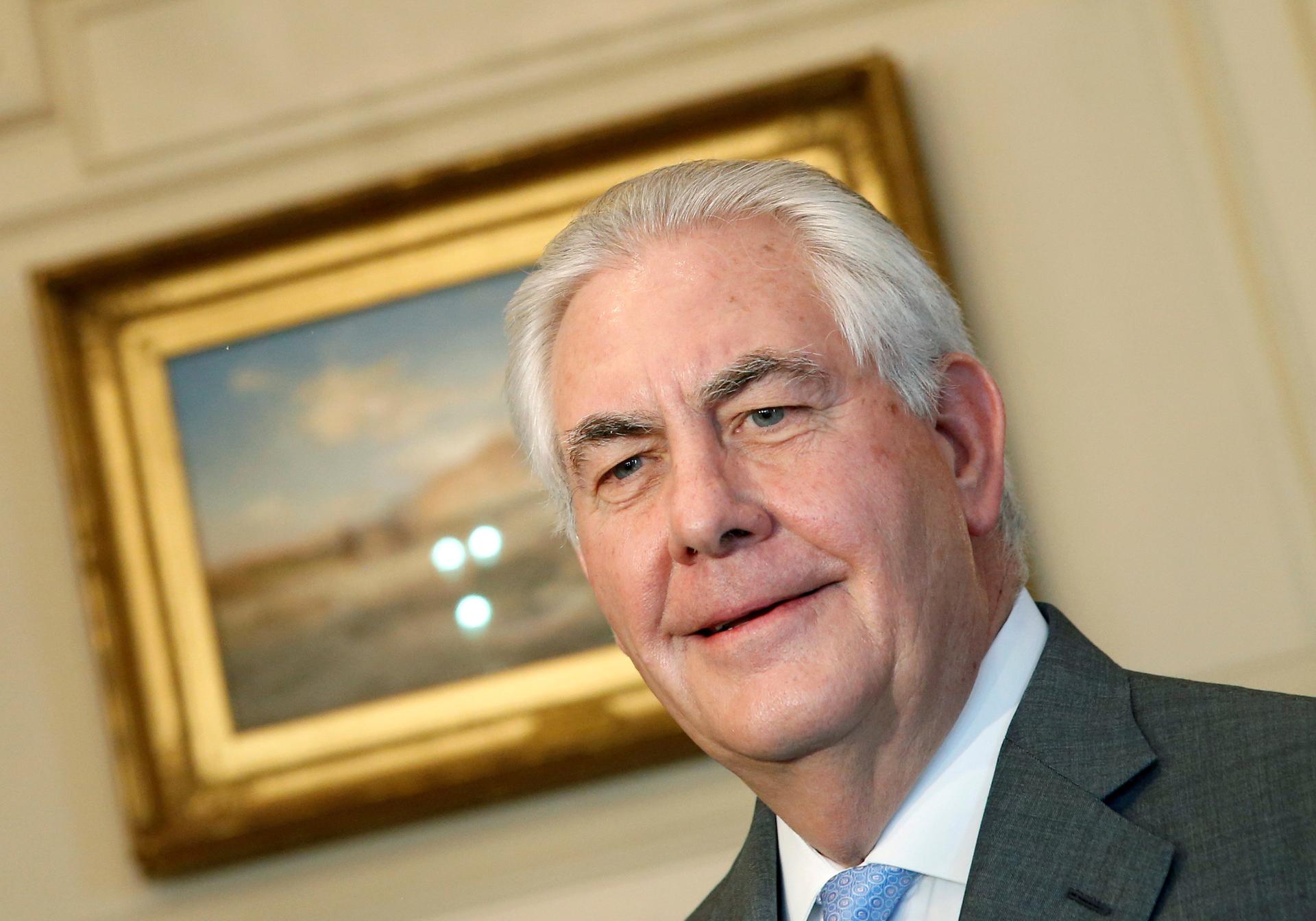It’s starting to look like ‘Home Alone’ at the State Department
When the State Department issued its annual report on human rights, Secretary of State Rex Tillerson skipped the announcement.
With US Secretary of State Rex Tillerson headed out on his first trip to Asia, you'd be excused for wondering who will mind the shop at Foggy Bottom while he's away.
Both deputy-level jobs at the State Department remain unfilled. So do six undersecretary slots and 22 assistant secretary positions.
The vacancies don't appear to be an oversight. Last month, President Donald Trump told Fox & Friends that he had no intention of filling many vacant government slots.
"A lot of those jobs I don't want to appoint because they're unnecessary," Trump said. "We have so many people in government. Even me, I look at some of the jobs, and it's people, over people, over people. I say, 'What do all these people do? You don't need all those jobs.'"
One of those empty chairs at State once belonged to Thomas Countryman, who served in the US foreign service for 35 years. His most recent post during the Obama presidency was assistant secretary of state for international security and nonproliferation.
Countryman says there are two possible explanations for why the White House is leaving so many State Department slots unfilled. One is benign, and one is more sinister.
"The benign explanation is that it's difficult to find somebody who has perfect, unthinking loyalty to Mr. Trump and who also is minimally qualified for the job that they would have to do and would need Senate confirmation. Those two groups of people may not intersect at all," he says. "The more difficult explanation, [which] unfortunately, I believe to be true, [is] that there's a deliberate policy on the part of the White House to let the State Department and other agencies atrophy to ensure that there remains a vacuum in the analytical and leadership capabilities of State and other agencies."
Countryman says vacancies at State mean fewer voices might speak out to challenge the snap decisions emanating from the White House.
And he points to other signs that he says suggest the Trump administration doesn't back diplomacy. For instance, the White House has discontinued the daily State Department press briefing and replaced the gatherings with two on-camera, question-and-answer sessions per week and two off-camera sessions. Perhaps more importantly, President Trump is reportedly considering slashing the State Department budget by about one-third.
Countryman doesn't accept the explanation that the State Department is a bloated bureaucracy in need of dramatic cuts in staffing.
"The mythology of the Trump campaign that the federal workforce is always growing is just plain false. We have the same number of federal employees today that we had in the late 1960s when the population of the United States was half as much," he says.
Countryman agrees that a new administration should be permitted to rethink the need for some federal jobs and eliminate positions. But he objects to what he calls a "meat cleaver" approach to "save a nickel at the State Department so that you can spend a dollar at Defense [Department]."
"Mr. Trump has said several times that the US has expended in the Middle East on direct military costs and indirect costs some $6 trillion since 2000. He's probably exaggerating, it may only be four trillion or five trillion. But how much is $5 trillion?" he asks. "That's enough to fund the State Department at its current level for 100 years."
He adds, "If smart diplomacy allows you to avert crisis and reduce military engagement in the Middle East even by 1 percent, the State Department has paid for itself."
